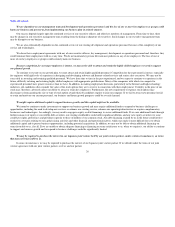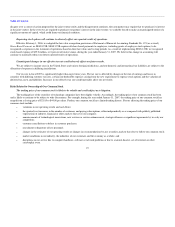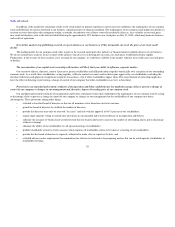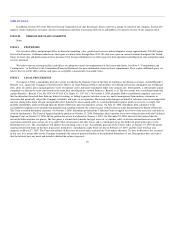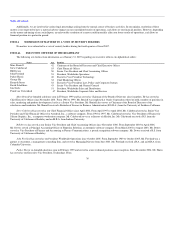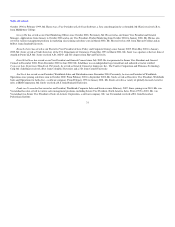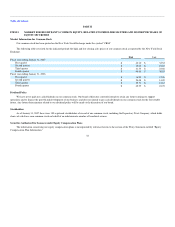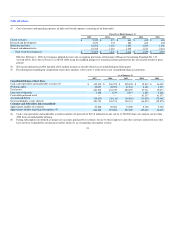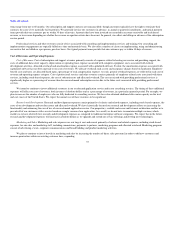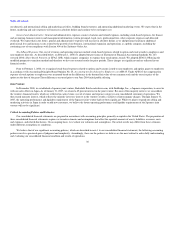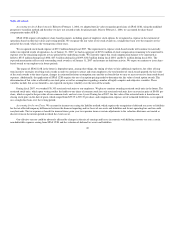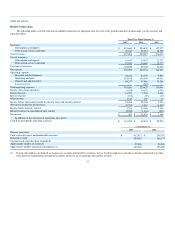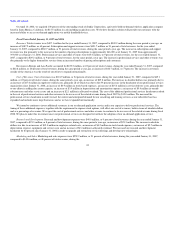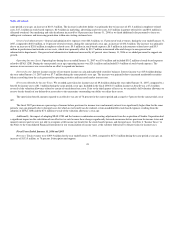Salesforce.com 2006 Annual Report Download - page 39
Download and view the complete annual report
Please find page 39 of the 2006 Salesforce.com annual report below. You can navigate through the pages in the report by either clicking on the pages listed below, or by using the keyword search tool below to find specific information within the annual report.
Table of Contents
ITEM 7. MANAGEMENT'S DISCUSSION AND ANALYSIS OF FINANCIAL CONDITION AND RESULTS OF OPERATIONS
The following discussion contains forward-looking statements, including, without limitation, our expectations regarding our outlook and future
revenues, expenses, results of operations and liquidity. Our actual results may differ significantly from those projected in the forward-looking statements.
Factors that might cause future actual results to differ materially from our recent results or those projected in the forward-looking statements include, but are
not limited to, those discussed in the section titled "Risk Factors." Except as required by law, we assume no obligation to update the forward-looking
statements or our risk factors for any reason.
Overview
We are the leading provider, based on market share, of application services that allow organizations to easily share customer information on demand,
according to a December 2006 report by IDC. We provide a comprehensive CRM service to businesses of all sizes and industries worldwide.
We were founded in February 1999 and began offering our on-demand CRM application service in February 2000.
In order to increase our revenues and take advantage of our market opportunity, we will need to, among other things, continue to add substantial
numbers of paying subscriptions and upgrade our customers to more fully featured versions such as our Unlimited Edition. We plan to re-invest our revenues
for the foreseeable future by expanding our data center capacity; upgrading our development and test data center; hiring additional personnel, particularly in
customer-related areas; expanding our domestic and international selling and marketing activities; increasing our research and development activities to
upgrade and extend our service offerings and to develop new services and technologies; expanding the number of locations around the world where we
conduct business; adding to our infrastructure to support our growth; and expanding our operational systems to manage a growing business. Additionally, in
our effort to further strengthen and extend our service offering, we may in the future acquire or make investments in complementary companies, services and
technologies.
We expect marketing and sales costs, which were 51 percent of our total revenues for the year ended January 31, 2007 and 48 percent of our total
revenues for the same period a year ago, to continue to represent a substantial portion of total revenues in the future as we seek to add and manage more
paying subscribers, build brand awareness and increase the number of marketing events that we sponsor.
Fiscal Year
Our fiscal year ends on January 31. References to fiscal 2007, for example, refer to the fiscal year ended January 31, 2007.
Sources of Revenues
We derive our revenues from two sources: (1) subscription revenues, which are comprised of subscription fees from customers accessing our on-
demand application service, and from customers purchasing additional support beyond the standard support that is included in the basic subscription fee; and
(2) related professional services and other revenues. Other revenues consist primarily of training fees. Subscription and support revenues accounted for
approximately 90 percent of our total revenues during fiscal 2007, 2006 and 2005. Subscription revenues are driven primarily by the number of paying
subscribers of our service and the subscription price of our service. None of our customers accounted for more than 5 percent of our revenues during fiscal
2007, 2006 and 2005.
Subscription and support revenues are recognized ratably over the contract terms beginning on the commencement dates of each contract. The typical
subscription and support term is 12 to 24 months, although
36


